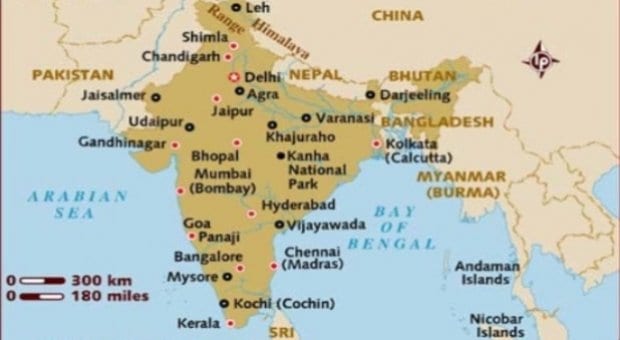Hundreds of LGBT people and their allies took to the streets of New Delhi and Bangalore Nov 24 as part of Pride celebrations, demanding an end to discriminatory laws and equal access to services and entitlements.
A DNA report says more than 1,000 people turned out for Bangalore Pride and Karnataka Queer Habba 2013, marching to the town hall to call for the repeal of a section of the Karnataka state police act that violates LGBT people’s rights.
In New Delhi, to the beat of drums, march participants waved rainbow flags and carried placards as they made their way through India’s capital’s streets. They called for an end to LGBT discrimination, four years after a Delhi high court struck down Section 377 of the Indian Penal Code that criminalized “carnal intercourse against the order of nature.”
The court’s 2009 ruling states that Section 377, “insofar as it criminalises consensual sexual acts of adults in private, is violative of Articles 21, 14 and 15 of the Constitution,” specifically, the right to personal liberty, equality before the law, and protection against discrimination based on religion, race, caste, sex or place of birth, respectively.
“We hold that sexual orientation is a ground analogous to sex, and that discrimination on sexual orientation is not permitted under Article 15,” the judgment states.
“If there is one constitutional tenet that can be said to be the underlying theme of the Indian Constitution, it is that of ‘inclusiveness.’ This Court believes that the Indian Constitution reflects this value deeply ingrained in Indian society nurtured over several generations,” the ruling states. “Those perceived by the majority as “deviants’ or ‘different’ are not on that score excluded or ostracised.”
In the wake of the ruling, Human Rights Watch called on the Indian parliament to “scrap Section 377 nationwide, and to replace it with laws that would provide full, gender-neutral protection for children and adults against sexual abuse and assault.”
A Times of India report notes that Section 377 is still being used to arrest LGBT people. On Nov 4, police in the city of Hassan, in Karnataka, arrested 14 people believed to be homosexuals, a move that angered activists.


 Why you can trust Xtra
Why you can trust Xtra


